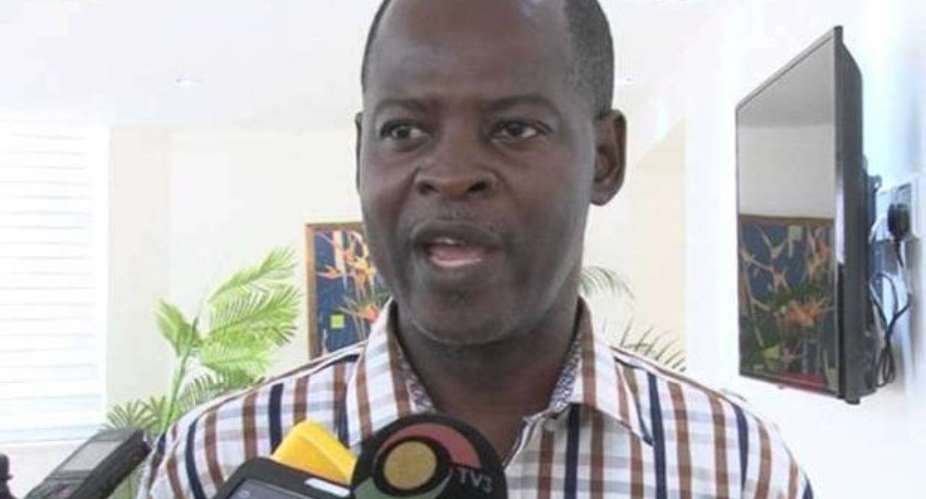“It will take a long time (to move from fossil fuel usage). We (Ghana) are not making a conscious effort (to reform). If you look at our thirst for power, the focus is more on thermal power generation and we (Ghana) are not really aggressively promoting investments into renewables," Dr. Steve Manteaw, a Ghanaian energy sector policy analyst has postulated.
According to him, "Ghana is not actually marking our international commitment with zeal, with policy and with complete action".
The previous government of Ghana in 2016 announced the establishment of a coal plant in the central region of the country. It eventually did not win power. It is however unclear what measures were put in place to commencing the coal plant but it is highly recommended that this present government does not attempt to pursue that ambition since it even contravenes the Paris Agreement signed that same year.
Despite growing international momentum towards climate change mitigation and the promotion of renewable energy, various African countries, including Ghana, continue to subsidise fossil fuels, when, in fact, phasing out subsidies to fossil fuels remains vital to achieving the aims of the Paris Agreement.
According to the Intergovernmental Panel on Climate Change (IPCC), to meet this commitment, however, it is expected that at least three-quarters of existing proven reserves of oil, gas, and coal will need to be left in the ground. But African countries, of which Ghana is part, do not seem committed to this agreement.
The Paris Agreement aims at strengthening the global response to climate change, by making finance flows consistent with a pathway towards low greenhouse gas emissions and climate-resilient development. Under the agreement, Ghana, together with about five African countries signed to ensure fossil fuel subsidy reform in its nationally determined contributions. But most energy sector policy analysts in the country have expressed disappointment about Ghana's weak show of commitment.
In late 2015, UN members adopted the UN Sustainable Development Goals (SDGs), and committed under SDG 12, to ensure sustainable production and consumption patterns by rationalising fossil fuel subsidies. It is said that recently, "Friends of Fossil Fuel Subsidy Reform" issued a communiqué calling for faster action in the phase-out of fossil fuel subsidies. It is interesting to note that Ghana, our beloved country, and five others, endorsed it. So why the lackadaisical posture to moving away from fossil fuels by Ghana?
The International Energy Agency (IEA) estimates Ghana's fossil fuel consumption subsidies to be at US$30.9 million; though the lowest, compared to other African countries, it is needful and urgent for Ghana to step up its commitment towards phasing out fossil fuels and also stopping any new fossil fuel projects in the future.
The reasons Ghana needs to reform
As international pledges need to be backed by concrete action, African countries that provide fossil fuel subsidies, including Ghana, which have all committed to the SDG 12, are expected to pursue domestic reform opportunities in a determined manner.
Fossil fuel subsidies are said to be socially regressive as they help to support the perpetuation of inequality by benefitting the rich and failing to meet the needs of the poor. Fossil fuels, according to experts, also damage public health. The IMF is said to have estimated that phasing out fossil fuel subsidies globally would lead to a 63 percent decrease in worldwide deaths from outdoor fossil fuel air pollution.
Researchers have indicated that the costs of fossil fuel subsidies far outweigh the benefits. From an environmental perspective, fossil fuel subsidies encourage wasteful consumption, depress investment in energy efficiency, and create an uneven playing field for renewables.
Economically, fossil fuel subsidies are said to be inefficient, as they impose a substantial burden on government budgets and decrease the competitiveness of key industries, such as low carbon businesses and the renewables sector.
According to Dr. Manteaw, "Ghana needs to flood renewables prominently in its policies and programmes and to provide incentives for individuals and private sector companies to invest into it."
"If the government provides incentives, there is a way the private sector can also contribute to helping this country to make a big shift from fossil fuel powered energy to renewables," he stressed.





 'Ghana beyond aid' has turned out to be 'Ghana without compass' – Naana Opoku-Ag...
'Ghana beyond aid' has turned out to be 'Ghana without compass' – Naana Opoku-Ag...
 Nation builder Mahama will deliver on his promise of a 24-hour economy for the b...
Nation builder Mahama will deliver on his promise of a 24-hour economy for the b...
 Prof Jane Naana is more than qualified to be Ghana’s first vice president and ev...
Prof Jane Naana is more than qualified to be Ghana’s first vice president and ev...
 WENDA petitions Akufo-Addo, Speaker of Parliament to make vote-buying illegal
WENDA petitions Akufo-Addo, Speaker of Parliament to make vote-buying illegal
 Supreme court declares payment of wages to spouses of President, Vice President ...
Supreme court declares payment of wages to spouses of President, Vice President ...
 Publish full KPMG report on SML-GRA contract – Bright Simons to Akufo-Addo
Publish full KPMG report on SML-GRA contract – Bright Simons to Akufo-Addo
 Kumasi International Airport to begin full operations by end of June
Kumasi International Airport to begin full operations by end of June
 Election 2024: Our ‘real challenge’ is getting ‘un-bothered’ youth to vote – Abu...
Election 2024: Our ‘real challenge’ is getting ‘un-bothered’ youth to vote – Abu...
 [Full text] Findings and recommendations by KPMG on SML-GRA contract
[Full text] Findings and recommendations by KPMG on SML-GRA contract
 Renegotiate SML contract – Akufo-Addo to GRA, Finance Ministry
Renegotiate SML contract – Akufo-Addo to GRA, Finance Ministry
